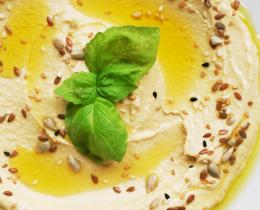Cleanses are to this decade, what low-fat diets were to the 1980s. It seems like everyone you meet is trying one type of cleanse or another, but the results vary from person to person. Some people go on a cleanse and feel amazing, while others struggle to stick with it or worse, end up getting sick.
It may not be the cleanse itself that’s the problem. It may be the way we are cleansing. While it feels like a magic bullet to take time off from your usual food routine, to have greater success you want to get clear about why you are cleansing and learn the best practices.
What Is a Cleanse & What Are the Benefits?
A cleanse, or a detox diet, is essentially a short term diet regimen that usually includes more fruits and vegetables, decreases toxins, and encourages the body to detox either with more fiber, herbs, or water.
Cleansing advocates say that just as you tune up your car, you can regularly cleanse and tune your body. The practice can release your “body burden”—the cumulative effects of the chemicals you ingest daily through your food, water, and environment. For example, the average American is exposed to 6 million pounds of mercury and 2.5 billion pounds of other toxic chemicals each year.
“Physically, taking a break from the obvious environmental toxins in your food will leave you feeling energized, renewed, and protected from disease,” writes naturopathic doctor and detox specialist, Tom Francescott.
Dr. Mehmet Oz calls cleansing “a strategy to help your body rid itself of toxins.” “We're exposed to harmful substances all the time; they're in our diet (pesticides, microbes, and mercury, to name a few) and the very air we breathe (think disinfectants, deodorizers, and the gasses released by fresh paint),” he writes.
Cleansing can activate enzymes throughout the body and nourish the body’s most important detoxifying organs like the liver, lungs, kidneys, and colon, according to Oz. It can boost your health by working to increase your nutrients and help your body function at an optimal level.
Getting Started
Along with getting rid of toxins, people have many different reasons for cleansing, from kick-starting weight loss to boosting the immune system to discovering a hidden food allergy or sensitivity.
Before you start any program, get clear on your true goal and be sure to connect with a cleanse that will help you achieve it. Also, check with your doctor or primary health care provider before embarking on a cleanse or new diet and exercise routine.
First-time cleansers, in particular, can start simply. Rather than trying a 21-day cleanse with complicated guidelines, why not try giving up one unhealthy habit like sugar, caffeine, or alcohol?
Another simple cleanse, or to prepare for one, is to cut off meals every night by 8:00 p.m. and have breakfast at 8:00 a.m. the next morning. This break gives your body 12 hours to rest and digest each day, which can be a major boost to your health.
"Fasting has been shown to improve biomarkers of disease, reduce oxidative stress and preserve learning and memory functioning," according to Mark Mattson, senior investigator for the National Institute on Aging.
Cleanse Tips
Whatever cleanse you choose, try these tips from Suzanne Boothby's Coming Clean: A Conscious Guide to Food Cleanses, before embarking on your next cleanse.
Set Your Expectations
Be ready to feel a little "off" during the first few days of any cleanse. You might experience headaches, body or muscle aches, light-headedness, fatigue, or more. Some people have cold or flu-like symptoms, and others break out, get rashes, or feel itchy. These are all signs that your body is releasing toxins. Many people quit during this critical phase, so try to stick with it and know you will feel better once you get over that initial hump.
Know Your Timeline
A cleanse can last anywhere from one to 40 days or longer. Most commerical cleanses on the market start with three days. Choose your timeline based on your experience level. If you are a first-time cleanser, be realistic. It's better to complete a short cleanse and feel good, rather than quitting half-way through a longer program. Think of it as a training run for longer cleanses in the future.
Take Time To Prepare
Don’t treat cleansing like another to-do item on your list. You might be tempted to spend the week before eating pizza and chocolate cake before these foods become "restricted." This mindset is more in the realm of dieting and deprivation, not getting healthier. Give your body and mind time to prepare. So if you’re a coffee drinker, start to reduce your intake. You can switch to half regular and half decaf or to green tea. If you have sweets after dinner, swap for fruit. Give yourself a few days to ease into it.
Get Support
Let the people in your life know you are cleansing, including family, roommates, coworkers and friends. You are much more likely to stick with your regimen when you have let people know about it. You can even ask a buddy to join you or at least offer you encouragement along the way.
Ease Out of the Cleanse
Make sure you create an exit strategy for your cleanse, too. Most people put so much focus on making it to the end, and then binge or go right back to unhealthy habits. Instead, spend at least a few days eating simple, easy meals that focus on whole foods. Don’t go out for a big meal or eat overly complex, rich meals.
Everyday Detox
Even if you’re not ready for a cleanse, you can try these seven recommendations to keep your body running well.
7 Daily Ways to Detox
1. Drink more water (bonus points for squeezing lemon in it).
2. Go organic with food, personal care, and cleaning products.
3. Move your body regularly (bonus points for working up a sweat).
4. Use a breathing technique to help oxygenate your body.
5. Eat more fiber (from plants, legumes, and whole grains).
6. Reduce or eliminate alcoholic beverages.
7. Don’t smoke.
Or check out more ideas in Omega's Guide to Cleanses and 10 Detox Tips by Tom Francescott.



